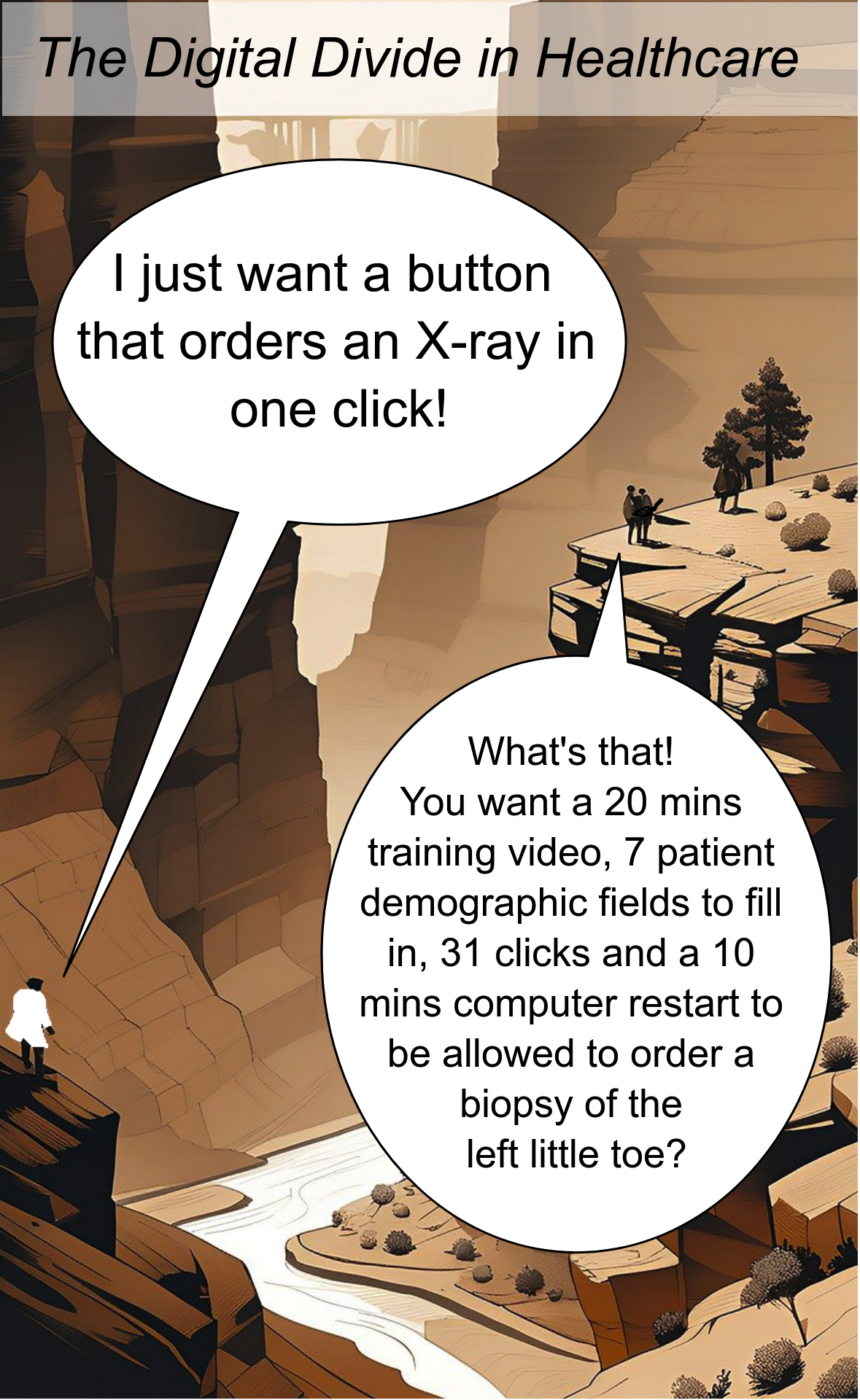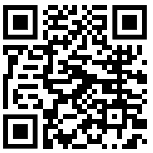Ask a Clinician series - Episode 1
Dr Mark Bailey
Understanding clinical decision making: insights from a medic
Treating disease and debugging code are very similar
- Doctors and computer scientists are really the same.
- Both are just trying to fix bugs!
But
- A doctor’s main concern is the patient, their safety and the control / fixing of their health.
But
- On the other hand, for those in the digital world, their main concern seems to be the data and the fixing of bugs in the code.
A gross over simplification
So why are we not understanding each other!
- At the end of the day, we are all working on the same larger issue, but the exchange of information / data is not happening well.
Why
Understanding
- Most doctors do not understand what digital really is and what digital people want from them.
- There is a rare bread of clinician that understands both the clinical and the digital aspects. These are called clinical informaticians. There is currently no certification or registration for this specialist role.
Understanding
- Most digital folk do not understand what doctors do or think, and why doctors do not fill in the digital forms and related materials perfectly that digital folk have created.
Understanding
- And here is the crunch point!
- Doctors find data entry distracts them from “their important task” of “fixing” the patient.
Canyon

Let’s be a fly on the wall
What is a doctor’s day like?
The junior doctor - Inpatients clerking
The junior doctor - Inpatients clerking
- ABCDE
- History taking
- Examination
- Formulate a treatment plan
- Prescriptions
- Write down all of the above in the clerking document
- Undertake blood samples
- Consent
The junior doctor - Inpatients clerking
- Procedures
- Referrals
- Chase all tests and referrals
- Answering patient and relatives questions
- Reassess patient
- Discharge letter
- Discuss patient with seniors
- Hand over care to next care team
The junior doctor - and …
- Teaching sessions
- QI projects
- Attend clinics for own learning
- Keeping portfolio up to date
- Yearly appraisals and competencies to sign off
Middle grade and consultants
Middle grade and consultants
- A lot of the same
- Lead ward rounds
- Outpatient work
- Supervision
- Lead MDTs
And admin! So much admin!
Outpatients
Outpatients
- Very much the same kind of work type and workload as emergency admissions, but on different times scales
A lot to juggle!
- It is mainly the junior and middle grade doctors that input data into EPRs, at least in the inpatient setting
- But we treat the patient, not the EPR!
A question of data entry
Data entry
- COWs
- Tablets
- Static desktops
- 10s of different clinical programs to log into, enter data into and read from
- Poor quality hardware (computers very slow or don’t work at all)
- Poor quality software (crashes, restarts)
- Not to mention the ergonomics of all of the above!
Data entry
- And because of the slow digital systems, doctors find shortcuts to get the job done as quickly as possible around all of the other tasks they need to do for the patient and other priorities
- Work As Imagined vs Work as Done (aka shortcuts) - WAI vs WAD
- Tactically lazy!
And so what can we all do to help doctors help you in digital?
Help us to help you
- If you can get data from what doctors do anyway, without the doctor having to do more work, then everyone is a winner (WAD not WAI)
- End-user centred design
- Design the system for the clinician, their way of thinking and their workflows
- Grab data from already populated fields / record sets
- Make it as easy as possible to do the right thing
- Centre the digital systems and data acquisition around the patient and the clinician, not the other way around
Questions
Previously asked questions
Previously asked questions 1
- Structured data input vs. free text. How to reach busy clinicians and close the loop to reduce the quantity of free text, and increase use of structured data?
- How to communicate that data quality starts at the data input stage - what messaging would be most effective at reaching clinicians?
- Clinical coding from a clinician’s perspective. How is this best taught to clinicians? What rules do clinicians apply to help ensure that notes are accurately coded (ie. services receive appropriate ICD10 and OPCS4 codes, so that accurate HRG and TFC codes can be grouped), earning the service tariff (or block) income?
- How could we do better together?
Previously asked questions 2
- Clinical data entry - overview of environments for data entry - e.g. in my head I imagine a trolley on a ward where patient notes are updated - what are the real-life data entry points, when does this information get “clinically coded”, how often is it checked, when does it get rolled up into an e.g. SUS submission or when does it hit EMIS/TPP data centres?
- Usability - what is the status quo of e.g. EPRs - some talk of waiting 15 minutes to login etc. How much of best practice UX (e.g. from consumer land) make it’s way into clinical software systems?
- Decision support tools and software as a medical device - aware of warnings like “this information is for guidance only and not intended to replace a diagnosis from a trained clinician” are used to avoid needing to get through SaMD regs - in reality, how reliant are clinical teams on unregulated software products?
Buy us a coffee
If you liked what you have seen today, and want to help support the Let’s Do Digital Team in providing you with further great material, please do consider buying us a coffee, or three.

Upcoming events
27th June - 3rd June Programming in Healthcare - Module 1
16th July Frontline Insights - Digitising a sleep service and automating clinic preparation - Andrew Simpson & Sam Inerney
1st August Ask a clinician - insights from a CCIO and pharmacists - Ramandeep Kaur
August - September Ask a clinician - insights from two GPs - Anita Phung and Dom Main
September Ask a clinician - insights from a surgeon - Sobath Premaratne
24th October Let’s Talk Digital Conference - Cheltenham / hybrid
21st of November Ask a clinician - insights from a solicitor and dentist - Sam Shah